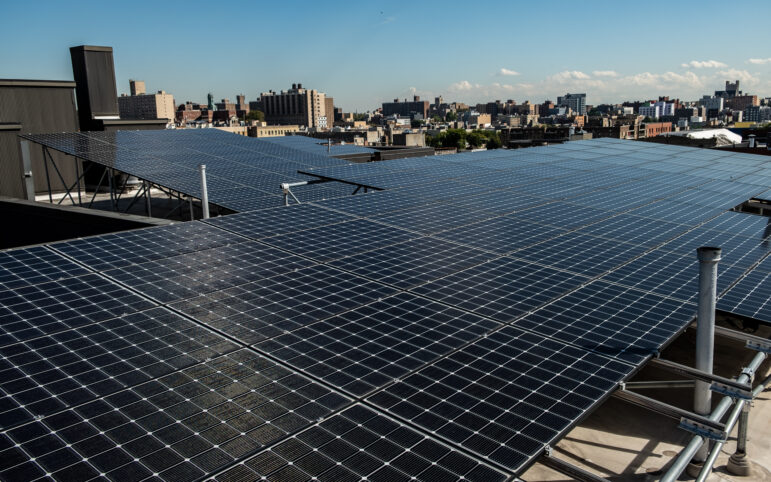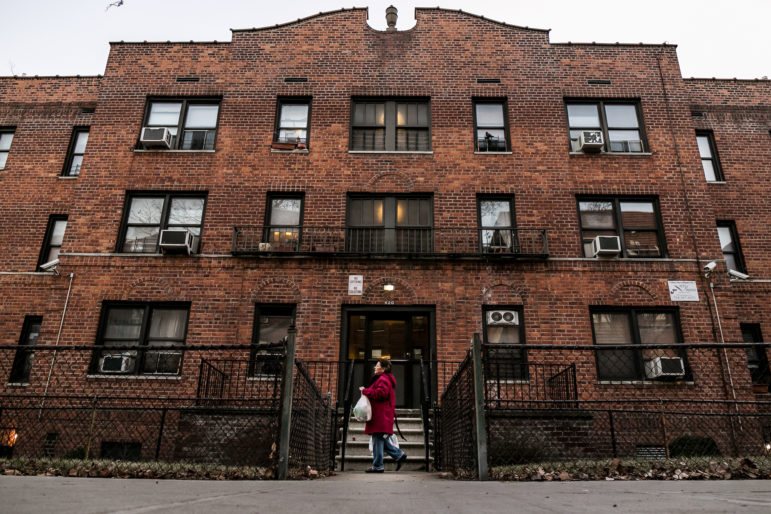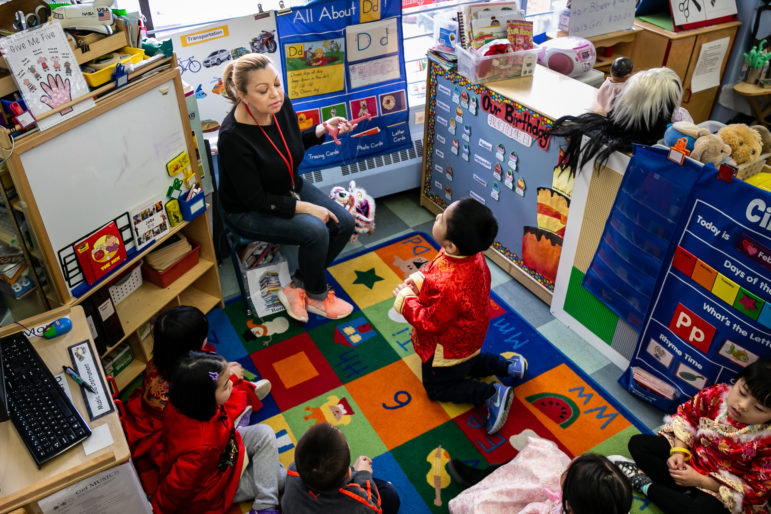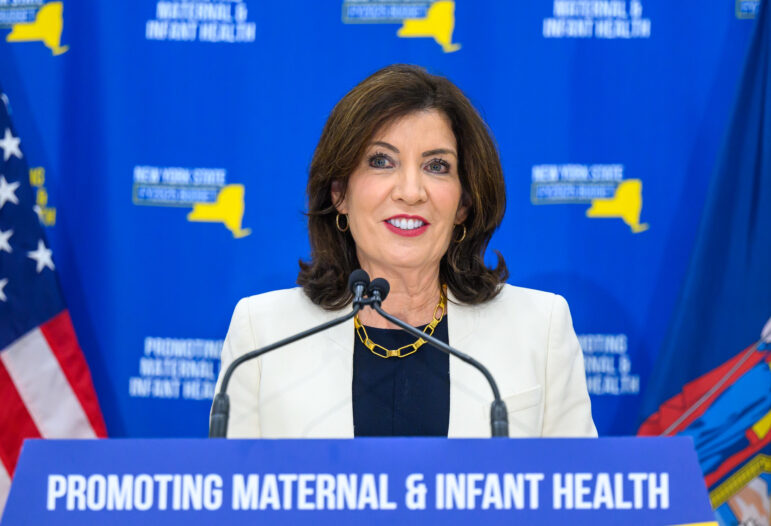
LiveOn-NY
A lot in the Bronx where asphalt won over affordable housing.
Big, clear-cut issues of urban inequality and injustice have been front-of-mind in the media of late —from an uptick in hate crimes and the growing fear that people of color experience on the street and in the workforce.
In our city we have a very pernicious, often hidden, kind of poverty and injustice– people who are paying over 50 percent, and sometimes up to 90 percent, of their income for rent. They are our family members, our neighbors, and our friends. They are the rent poor.
As the city’s population both grows and ages, affordable housing has quickly moved from an important goal to a crisis of social justice. Nonetheless, across the city, locals still attempt to foil the development of affordable housing in their neighborhoods. From Sunnyside to Sunset Park, residents continue to flood community board meetings to protest what they see as a limitation of resources that belong to them, like city-subsidized parking and access to the skyline.
Sometimes they win—taking hundreds of units of affordable housing for their neighbors off the market, and further solidifying our city as the sole purview of the rich.
That is a tragedy. Now more than ever, when social justice feels truly at risk, we have an obligation to support each other as a city of diverse voices, resources and needs.
The mayor clearly recognizes the need for new resources for our city’s most vulnerable residents—he just announced this weekend in a speech on the Upper West Side his intent to bring an additional 10,000 units of deeply affordable housing online, including 5,000 units for seniors—but no politician, even the mayor, can do this by themselves. It is our obligation to support him in that goal.
We have an opportunity to live up to our higher ideals with the innovative supportive and affordable housing development “WSFSSH at West 108” in Manhattan Valley. A vocal group of parking advocates in the neighborhood are pushing back hard, pitting housing against city-subsidized parking.
The time for infighting is over. Now more than ever, as resources quickly dissipate for our city’s and our nation’s poor, we must insist on generosity of spirit. We must make hard choices and support each other.
The West Side Federation for Senior and Supportive Housing is one of the city’s most accomplished providers of affordable, senior and family housing, and has undertaken this new project to help address the severe shortage of permanent affordable housing on the Upper West Side.
WSFSSH at West 108 will provide the neighborhood with 194, 100-percent permanently affordable apartments for low-income families and seniors, as well as an expanded Valley Lodge to serve 110 seniors, 18 more than today. The development will include healthcare and childcare services and community resources including public bathrooms for Anibal Aviles Playground and a home for the Central Park Medical Unit.
By working to retain 90 to 125 parking spaces, the nonprofit developer has done its best to accommodate the parking advocates. Nonetheless, members of our community have continued to push back.
At Valley Lodge I get calls daily from people facing eviction because they can’t both pay the rent and eat on their income–- people spending the last of their savings to hold off eviction with no hope of ever again having an income large enough to afford their rent because they are elderly or disabled and will never work again.
As people are evicted, more apartments get destabilized, moving onto the market for $3,000 to $5,000 per month.
This is a trend not just in Manhattan Valley, but citywide. We have a chance to make a difference here. We have a chance to show others what we stand for, in our neighborhood and our city—inclusiveness, and generosity of spirit.
Let’s hold fast to those higher ideals and support WSFSSH at West 108.
Karen Jorgensen is the director of Valley Lodge.








9 thoughts on “CityViews: NYC’s Ideals at Stake in Choice Between Low-Income Housing and Parking”
Anybody who owns a car in the city, especially in the Bronx or Manhattan, has a good reason for it. Maybe their jobs are out in the suburbs or somewhere within the city inaccessible by bus or subway. Maybe they have kids/parents/friends/doctors who also can only be reached by motor vehicle. Maybe they use the car to buy groceries for their families. This is hardly a social justice issue, grow up.
Translation: “I own a car because I enjoy the choices it affords me in education, employment, health care, and grocery shopping. And I’ll be damned if I’m going to pay market rate for storing my private property on public land, drive my private vehicle on publicly owned roads, or risk anything of my own to secure cheap petroleum. I’m an adult, and if you disagree with me, you’re a baby.”
O.K. so how are persons that live in Manhattan or the Bronx and works outside the city going to get to their jobs? You know that reverse-commuting has grown over the past 20 years.
Reverse commuting has grown over time but the vast majority of working residents still do so within New York City.
A bit less than half of households have a car registered. The vast majority of those residents could get by without one or use a car share/for-hire service when necessary. It’s true that some residents do require an automobile, but it’s definitely not near half. I would say substantially less.
People should also reconsider the communities they live in. It’s true that it can be difficult for people to move, but if you’re reverse commuting from Manhattan Valley/The Upper West Side, you might want to either reconsider your living arrangement or employment.
“Anybody who owns a car in the city, especially in the Bronx or Manhattan, has a good reason for it. ”
Your statement is not backed by statistics:
“In New York City, 10% of auto trips are under one-half mile, 22% are under 1 mile and 56% are under 3 miles”
http://www.nyc.gov/html/dot/html/bicyclists/bicyclists.shtml
55.2% of households do not have a registered auto, 26% commute via one:
https://factfinder.census.gov/faces/tableservices/jsf/pages/productview.xhtml?src=CF
A small portion of the population works in the burbs. Most people that live in NYC, work here. Most people work within their borough, followed by Manhattan.
And yet there are 112373 more passenger vehicles registered in NYC than in 2010. Largest percentage increase (8.78%) in Brooklyn. The approx 44.8% of auto-owning households are the middle-class and higher income people.
https://files.acrobat.com/a/preview/2126f16d-7ed2-4532-83eb-9a075931fbc0
All the building supers – who live in the buildings in which they work! – have cars. The typical car owner in the city is either not working, or works from home, and has spare time to babysit the car. It’s not the city’s duty to provide free or subsidized parking to those who choose to own a car here.
On street parking is not free. We all pay to maintain those streets and vehicle owners pay a separate tax to NYC on top of the NYS registration fees. Some state and federal money goes to NYC for road maintenance too.
But the issue in this article is off-street parking, not on-street parking. Some people are demanding a higher parking ratio for 100% affordable housing in transit-rich Manhattan Valley. That’s ridiculous.
Transportation is part of housing cost. If you live in Westchester and work in Manhattan, you don’t get a free train ticket. If you live in Manhattan and work in the suburbs, you have to pay for occupying valuable land.